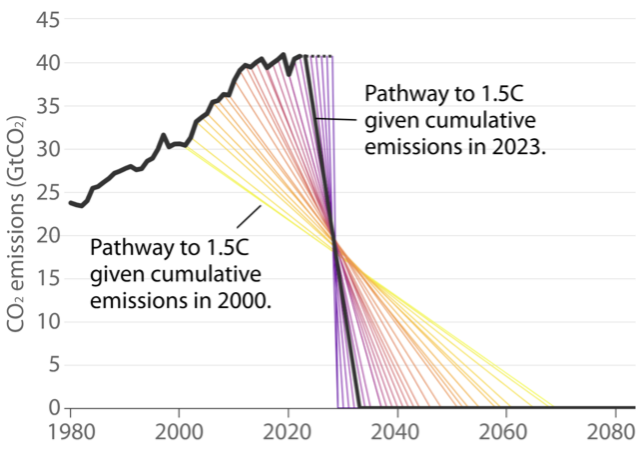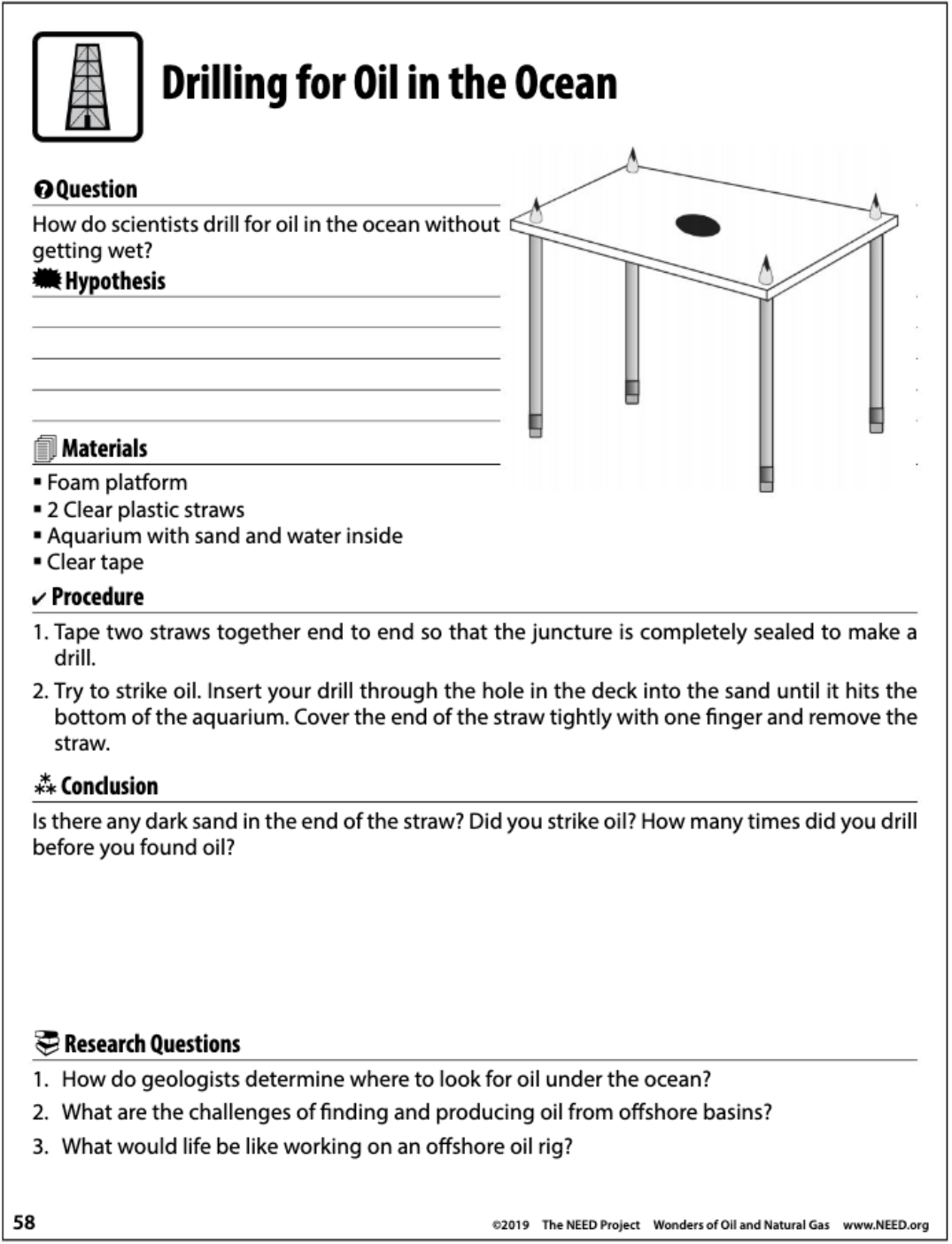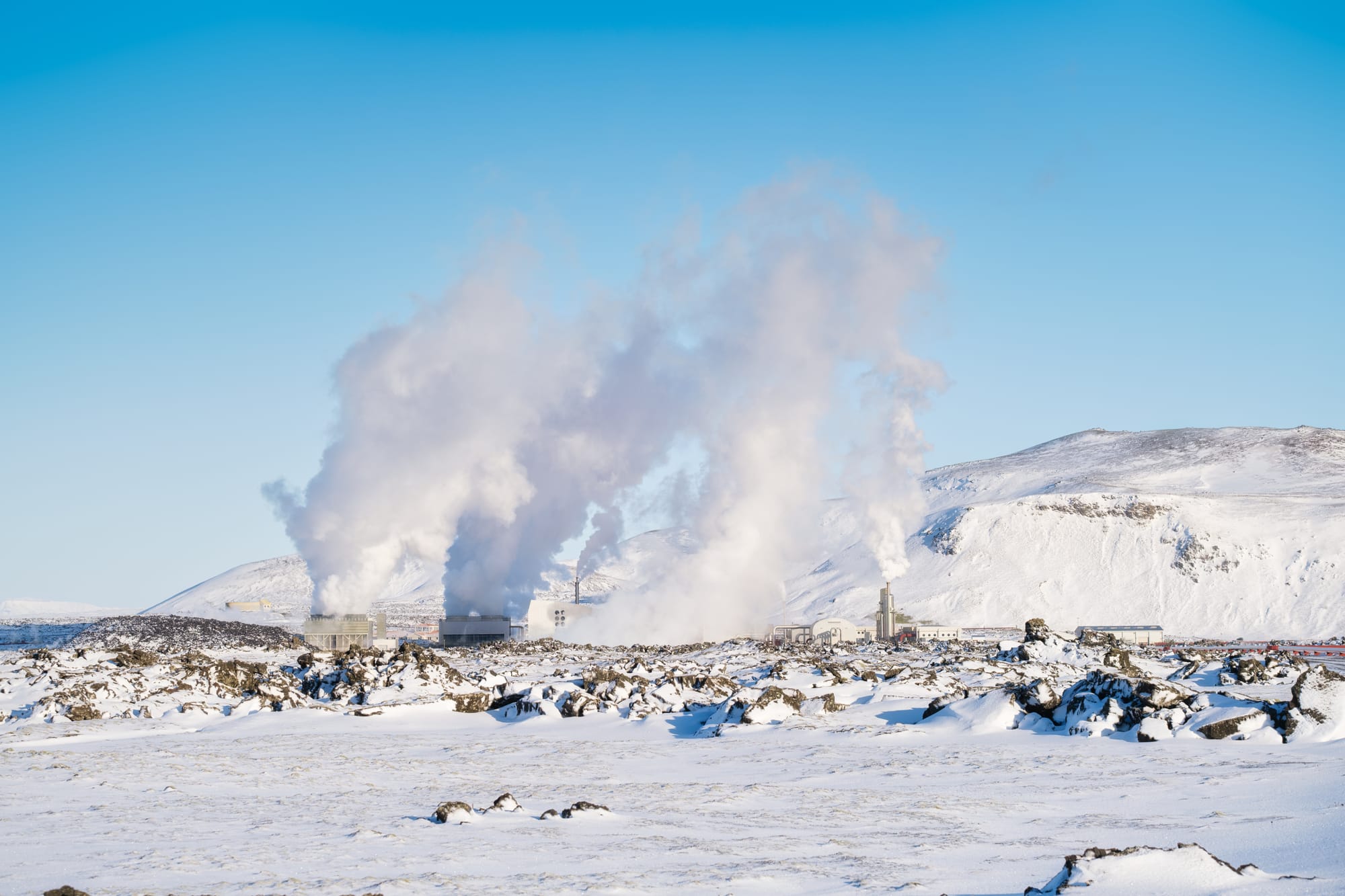A call to action: cut ties between education and the fossil fuel industry
The continued extraction of fossil fuels poses an immediate, existential threat to modern societies. There is an urgent need to change courses and syllabuses, to cut ties with fossil fuel companies, and to foster a culture that empowers imagination, design, and the creation of just and fossil free futures. We urge the reader to, where possible, embed the climate emergency into school and university curricula, consider climate activism themselves, and to work with colleagues to create distance between education and the fossil fuel industry.
As early as 1962, Shell’s chief geologist wrote a book-length report warning of the effect of rising atmospheric carbon dioxide levels from burning fossil fuels [1]. Evidence shows Exxon was well aware of climate change by 1977, 11 years before it became a public issue [2]. An exposed 1979 Shell report described “severe stresses on human societies” from burning fossil fuels [3]. The famous ‘Greenhouse Effect’ internal memo from Shell in 1986 [4] warned of climate impacts “larger than any that have occurred over the last 12,000 years”. A confidential 1989 report warned: “many species of trees, plants, animals and insects would not be able to move and adapt” and, with explicit xenophobic and colonial attitudes:
“the potential refugee problem […] could be unprecedented. Africans would push into Europe, Chinese into the Soviet Union, Latins into the United States, Indonesians into Australia. Boundaries would count for little – overwhelmed by the numbers. Conflicts would abound. Civilisation could prove a fragile thing”.
Oil companies continue to amplify risks for those most vulnerable to climate change. One example is TotalEnergies’ key involvement in the East African Crude Oil Pipeline (EACOP) that will lead to the region becoming uninhabitable. Protest is aggressively silenced, with Shell complicit in the execution of nine Nigerians who peacefully protested oil leaks in the Niger Delta [5].
Fossil fuel companies plough billions into denial, lobbying, disinformation, and manipulation designed to delay climate action by confusing the public and policymakers about the climate crisis and its solutions [6]. Meanwhile, carbon dioxide levels continue to rise, threatening billions of human lives and countless species.

The fossil fuel industry also seeks to control those in power to maintain control of its profits. It has undermined attempts to reduce carbon dioxide levels in the atmosphere through: (i) fossil fuel lobbying groups, e.g. from Tufton Street, who manipulate politicians [7]; (ii) fossil fuel interests in media companies, such as GB News owner’s hedge fund with $2.2 billion in fossil fuel investments [8]; (ii) fossil fuel interests in media companies, such as GB News owner’s hedge fund with $2.2 billion in fossil fuel investments [8]; (iii) greenwashing advertising, showing abundant renewable energy while simultaneously scrapping plans to grow the sector [9]; and (iii) greenwashing advertising, showing abundant renewable energy while simultaneously scrapping plans to grow the sector [9]; and (iv) sponsorship of education, culture, and research institutions to create a dependency on money from the industry.(iv) sponsorship of education, culture, and research institutions to create a dependency on money from the industry.
These interventions from the fossil fuel industry have facilitated the exponential rise in carbon emissions that has made it impossible to keep the world’s temperature below the critical 1.5OC above pre-industrial levels, as shown below. This means that devastating increases in food crises, droughts, fires, floods, and mass migration are now inevitable. The future of young people is bleak, and we cannot allow the fossil fuel industry to keep destroying it.

Here are some personal stories from people’s experience of fossil fuel manipulation tactics at each stage of education from childhood, school, and university, to working for fossil fuel companies.
A child's perspective
“Lego was my childhood obsession in the 1990s. It provided a world where creativity thrived. It developed my spatial comprehension so that I can now easily visualise objects without having them in my hands. But how else did Lego affect my young mind?
Between 1966 – 1992, both Shell and Exxon were the only companies in Legoland. In 1992, this was replaced by Lego’s own oil company, Octan. Many Lego sets were oil tankers, petrol stations, and even oil refineries, and nearly everything in Legoland is reliant on oil. I was totally unaware of this until I started to think about it as an adult. I feel like my creativity was hijacked by fossil fuel companies who knew my future was being destroyed. It made it difficult for me to imagine a world that was not centred around oil.
Fossil fuel companies require a social licence to operate. If kids play with toys that legitimise oil, they are unlikely to question these companies or fight against them when they realise their world is burning. This is also why these companies sponsor artistic and cultural enterprises, such as museums and theatres, to make people think that pleasure is enabled by their brands.
I was led to believe that advances in human civilisation were thanks to fossil fuels. Cartoons like the Flintstones were funded by a fossil fuel thinktank in the 1970s, creating episodes where Fred wants to join an oil company, or where Fred discovers oil and humanity moves out of the caves. I was not taught colonial history or introduced to the workings of sustainable indigenous societies and their rich communities, which I believe would have been extremely helpful to learn in school.
Now I am an activist fighting against the dominance and expansion of fossil fuels, against the destruction of nature, and for equity.
Recently, I protested alongside children at Kidzania, where children role-play different careers, where Shell is a major sponsor. Children may even act as petrol station attendants wearing Shell uniforms and use it to recruit ‘budding scientists to create sustainable fuel’. I cannot bear to see future generations being manipulated as I was.

I regularly protest at London’s Science Museum, which I loved as a child, because they accept donations from fossil fuel companies such as Shell, BP, Equinor, and Adani [11] to legitimise their planet-destroying brands to young people. The new Adani Green Energy Gallery is sponsored by the renewable arm of Adani – the world’s largest coal company – which uses its renewable capital to expand coal operations [12]. This led to hundreds of teachers pledging not to take their students to the Science Museum [13].
When I realised how the fossil fuel industry manipulated me as a child, it made my skin crawl. I thought fossil fuels were normal and important until quite recently, but once I learnt the insidious and manipulative tactics the fossil fuel industry applies to children, I couldn’t stand by and watch it continue. I stand up to stop it.”
Pete Knapp, Air quality PhD candidate
While the fossil fuel industry works to normalise its activities with children, many children suffer the consequences of climate change and wars that they profit from. Figure 4 shows that in 2022, $134 billion in profits – more than the GDP of 119 countries – were taken by fossil fuel companies worldwide using Russia’s invasion of Ukraine to hike oil prices. This greed has increased vulnerable people’s food and heating bills. In a 2023 report from York University [14], eight out of 10 councillors say that children in low-income families were at risk of destitution in their area due to the crisis. Financial pressure on families has led to increasing safeguarding concerns of vulnerable children, additional support, and absenteeism in primary, secondary, and special schools [15]. Crises are money making opportunities for fossil fuel companies, and this is their bottom line; even when children bear the cost.


A teacher's perspective
“I am an A-level Chemistry teacher. In my experience, teenagers are environmentally aware, and surveys show that some are avoiding companies that don’t align with their values. For some in my able and urban cohort, Shell is not an attractive employer, but others have absorbed the greenwashing that fossil fuel companies must ‘lead the transition’ and that they can make ‘change from within.’ These false narratives are designed to keep political power within these industries who have abused it for decades. The fossil fuel industries target those from free school meals backgrounds looking for more secure lifestyles for whom the high income is a way to escape hardship, which is created from the inequality these businesses thrive on.
Young people are immersed in the 24/7 horrors of social media, where influencers glorify high-carbon lifestyles, and the fossil fuel industry’s manipulative tactics lurk. Often, young people are made to feel guilty for aspiring to such lifestyles, but they are subjected to the most advanced and insidious marketing, and they cannot be blamed. We should certainly not be telling them that it is their duty to fix all the problems that those in power are responsible for now.
At my school, most young people tend to engage with climate-related lessons or talks but feel like there’s not nearly enough, especially on transformative action and social justice. They know how bad the future looks – they don’t need us to tell them – but do not feel protected or hopeful that things will improve.
Formal delivery on the reality of the climate emergency barely features in A-level. The Edexcel Chemistry course I teach specifically excludes climate change. The only mention is in the acid rain section: “understand the problems arising from pollutants from the combustion of fuels, limited to the toxicity of carbon monoxide and the acidity of oxides of nitrogen and sulphur”. The Physics and Biology specifications are similarly unhelpful, with no prospect of including the climate emergency in sight. All young people are left with is what they learn from social media. Learning about an existential threat from social media may not provide the same safeguards against poor mental health as formal delivery in school may do, and omission of climate change from the courses leaves young people to discover all the horrors alone.
We also cannot expect young people to learn about political engagement and power imbalance outside lessons, and education should not shy away from it. We need a planned, cross-curricular, age-appropriate, differentiated, and psychologically-aware curriculum delivered by trained teachers. Group grades rather than individual grades may prepare students for a collaborative future rather than a fierce and self-protecting one.
Above all, young people have not caused the climate emergency and adults have failed to protect them from it. We have failed to deliver compelling, hopeful, and empowering visions of the future. Our students need totems of success, better stories, giving them power over their futures, and the freedom to be teenagers.”
Ian McDermott, A-Level Chemistry teacher
Fossil fuel companies, including BP and Shell, partner with NEED (National Energy Education Development) to provide free educational materials to cash-strapped schools. Lesson plans include making an oil rig using a desk [18], and have learning objectives such as ‘Students will be able to identify and describe careers in the natural gas and energy industries, and skills and qualifications for each job’ [19]. The meat and dairy industry use the same tactics to provide free educational materials for Maths, Science, and Literacy that aim to legitimise the industry [20], despite major cuts to meat and dairy consumption being essential to reach even the 2 degrees goal specified in the Paris agreement [21]. Both industries use similar strategies to target children, such as paying influencers [22] and celebrities [23] to run advertising campaigns.

Cambridge University Press and Assessment claim climate education is “undervalued and underrepresented in the curriculum” [24]. A Teacher Tapp survey found about 35 % of secondary teachers did not believe they spent enough time teaching it, and about 40 % of these teachers said they required more resources [24]. Additionally, the fossil fuel companies responsible have been polluting education for decades.
An undergraduate's perspective
“I pursued chemical engineering at Imperial College London due to my interest in sustainability, but I’ve been disappointed by the attitudes prevalent among students and staff here. Although we learn about sustainable processes, we’re equally taught about oil refining and extraction, and there is an absence of any education on why climate change is such a big issue. Even in the carbon capture project there is little explanation regarding the severity of the detrimental effects of high atmospheric CO2, and there is no discussion of how carbon capture and storage (CCS) has been historically used to delay climate action. The message students receive is that both the fossil fuel, carbon capture, and renewable energy sectors are expanding and important.
This lack of information around the climate crisis is then coupled with prevalent marketing from companies like BP and Shell, which offer careers talks, internships, and even CV workshops to students. From my experience, the student body is mostly climate-conscious, but the messaging from fossil fuel companies leads many of my peers to either believe that the damage has been overstated or that they will be able to change these companies from the inside. Some of us pushed to reduce our affiliations with these companies, which finally happened this year due to a motion from Imperial’s student union requiring societies to cut ties with fossil fuel, arms, and tobacco industries.
This motion came in the absence of action from Imperial College as an institution. I’ve been involved with Imperial Climate Action’s divestment campaign for two years now and have seen a resistance to change and even to making a statement regarding a tangible commitment to sustainability. Even as the campaign generated hundreds of student signatures in support of divestment, as well as official support from the student union this year, Imperial has clung tight to the “engagement through investment” narrative, while ignoring that their relatively small endowment is not near substantial enough to exert influence over these companies. This is in contrast with more than 100 UK universities that have rejected higher education investment in these industries [25]. It has become obvious that the senior management of Imperial College London prefer to work alongside fossil fuel companies rather than the student body. This is not hard to believe when the personal involvement of university presidents and chancellors in fossil fuel companies is tolerated (the previous president of Imperial College London Alice Gast sits on the board of directors of Chevron).
The momentum of Imperial’s many sustainable initiatives keeps me hopeful, though. For example, the highly successful Imperial Green Careers Fairs have proven the widespread interest in sustainable careers, and last year a network for sustainable initiatives was created to facilitate the success of each campaign. However, all of these are run by students and staff who are already overwhelmed with a heavy workload, are often platforms for fossil fuel companies to greenwash, and often face pushback instead of support from the College. I want my university to cut ties with fossil fuels, so we can present a more truthful narrative around climate to students.”
Julia Mitra, Undergraduate in Chemical Engineering

A PHD student's perspective
“When I started my bachelor’s degree in Chemical Engineering at Imperial College London, I was highly sceptical of the fossil fuel industry and other extractive industries because I knew about their disinformation tactics and heavy lobbying to delay climate action. The industry was everywhere at Imperial, at the countless careers fairs, careers workshops, guest lectures, event sponsorships, student bursaries, and so on. Before I knew it, my view of fossil fuel companies as bad faith actors who needed to be dismantled had softened to seeing them as are a necessary evil for the transition.
Their presence at the university legitimised them. Since my friends wanted to work for BP to reduce methane leakages, and my lecturers worked with fossil fuel companies on carbon sequestration, I convinced myself that the harm that the fossil fuel industry had done in the past was water under the bridge, and that they were learning to change and to become more responsible. They sponsored sports days and pizza nights, so that I would associate them with good times. This is the image they present to encourage people to work for them, and to see them as a part of the solution. But it is simply another manipulative tactic that I and many others fell for.
I recently talked to a chemical engineering student who was planning to climb to the top of the ladder at a fossil fuel company and, after 20 years, change it for the better, blissfully unaware of how useless climate action will be then. When you’re surrounded by people who think like that it is all too easy to start doubting your own sense of urgency and the scale of the climate crisis. In my opinion, this influence on university students is the greatest damage that the fossil fuel industry wrecks on higher education.”
Sebastian Gonzato, PhD in Energy systems modelling
The influence of fossil fuel companies in education should not be left to the whims or opinions of unrepresentative, self-interested, or privileged individuals easily susceptible to manipulation. Instead, university management and staff should listen to and facilitate bottom-up sustainability initiatives. Examples include the University of Cambridge with its report on divestment [26], the University of Lausanne encouraging academic advocacy [27], and the University of Barcelona agreeing to mandatory climate education following student protests [28].

A Shell advisor's perspective (safety and operations)
“I spent 10 years helping Shell to improve its operational and process safety culture. I saw no evidence that Shell intended to change its core focus away from fossil fuels. I severed ties with Shell in 2022 after an Extinction Rebellion protest at the Shell HQ encouraged people to jump ship.
Organisations and entire industries can change, they do and it’s not always a struggle. One thing is certain: change is only possible if you have leadership. Not because ‘Management’ have all the ideas and answers, but because they have decision-making power and hold the keys to unlock the necessary resources to enable transformation.
At the operational front line there is no talk of energy transition. We surveyed 20,000 personnel between 2011–2021, rarely did anyone mention climate change, net zero, decarbonisation, emission targets, or a transition. Shell has always been motivated by oil and gas production and managers are rewarded on this basis. Since Wael Sawan became the CEO at the start of 2023, he has crystalised this positioning.
Sawan has made it clear in published articles and in investor meetings that focus must be on oil, gas, and petrochemicals to maximise profits. “Drill, baby, drill!” you might say.
In June last year, Sawan indicated Shell would be scaling back their renewable energy efforts [29] causing the Head of Renewable Generation to leave Shell weeks later [30]. An open letter written by two employees from their Low Carbon Solutions division of Shell urged Sawan to continue their low carbon investments and practically begged him not to roll-back on their energy transition efforts [31]. The letter was seen by 80,000 staff and supported by over 1000 Shell employees.
Sawan’s response was to eliminate 200 jobs from the department and review a further 130 positions for redundancy in 2024 [32].
Yet, Shell has just launched a promotion for their energy transition skills hub in February 2024, a training and education program “aiming to prepare people for jobs focused on energy transition” [33]. This is a classic example of greenwashing education and careers. It’s not change, it’s window-dressing.”
Caroline Dennett, ex-Shell advisor
Shell claim to give money to organisations devoted to ‘saving humanity’ and protecting biodiversity, but they also state on their website that ‘we may not always agree with their opinions on topics such as climate change’ [34]. For example, Shell sponsors Earthwatch, who provide corporate training enabling ‘profound change in their business to meet sustainability goals’ [35], demonstrating that Shell is happy to pay to be associated with these organisations to improve their image, despite clearly acting against their goals. Shell additionally states on their website that, in cases of disagreement, ‘we make our views known within the organisation and seek to influence its position on certain policies.’ This demonstrates Shell uses its sponsorships to reduce an organisation’s impact. Shell’s list of partners includes the Alliance to End Plastic Waste, the Jet Zero Council, the UN Environment Programme, The Nature Conservancy, and the World Economic Forum, all of whom are at risk of manipulation from Shell.
A Shell employee's perspective (research and development)
“I worked at Shell for more than 30 years after getting a PhD in engineering. I started in Research & Development, then as a principal scientist working with management up to Board level. I can tell you this: you cannot change an oil and gas company from the inside.
When I joined, my colleagues talked about getting Shell away from oil and gas. When I left, Shell was still talking. Unfortunately, that was all it was – talk. When I joined it was an oil company. When I left it was a bigger oil company. A former head of strategy once said to me: “Shell has two drivers: its survival and its profit”.
“We are on a highway to climate hell with our foot on the accelerator,” said the UN secretary general, António Guterres, in 2022. The hottest year on record was 2024, for the first time breaking 1.5oC of warming. Fossil fuel interests are actively making things worse – bribing politicians, promoting false solutions, and denying the need to reduce oil and gas. A recent internal memo for Shell staff on ‘how to have conversations about Shell’ didn’t mention the climate crisis or the science behind it once. It did mention the need to maintain profits.
We must accelerate the energy transition out of fossil fuels. No new oil, gas and coal is the key, as the International Energy Agency, the World Health Organisation, the UN, the IPCC, and the vast majority of the scientific community have all been saying for years. The oil and gas industry is opposed to this.
It doesn’t matter that you are a good person; that you desire change. It doesn’t matter how much you sincerely believe you will make a difference. You won’t in the oil and gas industry. The machine grinds on.
If you want to work in energy, the best thing you could do as a chemical engineer is to work in the renewables sector. The oil and gas industry will chew you up and spit out. Refuse to work for them and show them a better way.”
Dr Grahame Buss, ex-Shell employee

It is time that we stop allowing the fossil fuel industry to influence education and manipulate us. This industry associates branding with children’s activities; it provides free resources to underfunded schools designed to recruit and to brainwash; it distracts students from climate action by promoting techno-optimism; and it positions fossil fuels as a necessary part of the future when there is no room for new oil, gas, and coal extraction. The deliberate and disingenuous strategies used by fossil fuel companies intentionally hide the severity of their destructive practices so that they can continue to maximise profit. Sadly, their strategy in education has proven successful so far, as we illustrated in this article. We hope that this article will reduce their impact on others by shining a light on these tactics and inspire others to become climate activists.
The fossil fuel industry has proven time and time again that they prioritise profit over ethics and will continue expanding fossil fuel extraction until they are forced not to. We are on a climate cliff edge, and we urgently need to make necessary, albeit tough, changes. This is why we call on educational institutions to cut all ties with fossil fuel companies and put an end to their false narratives. Instead, we need new narratives that place nature-based solutions, reduced consumption, active travel, equity, empowerment, and collaborative community at the centre of education.
The authors and contributors are all active in the climate movement because we believe in the necessity of non-violent direct action against the fossil fuel industry.
References
- C. f. I. E. Law, “A Crack in the Shell,” 2018.
- N. Banerjee, J. H. C. Jr., D. Hasemyer and L. Song, “Exxon: The Road Not Taken,” InsideClimate News, 2015.
- J. Williams, “Carbon dioxide, climate and society,” IIASA, 1978.
- Greenhouse effect working group, “The Greenhouse Effect,” Shell, 1988.
- Amnesty International, “Nigeria: 2020 could be Shell’s year of reckoning,” 10 Feb 2020. [Online]. [Accessed 11 March 2024].
- R. Brulle and C. Downie, “Following the money: trade associations, political activity and climate change,” Climate Change, vol. 175, no. 11, 2022.
- H. Horton and A. Bychawski, “Climate sceptic thinktank received funding from fossil fuel interests,” The Guardian, 2022.
- S. Bright and J. Grostern, “GB News Owner’s Hedge Fund Has $2.2 Billion Fossil Fuel Investments,” 30 October 2023. [Online]. [Accessed 29 February 2024].
- ClientEarth, “The Greenwashing Files,” ClientEarth, 2024.
- U. N. E. Programme, “Broken Record,” UNEP, 2023.
- Culture Unstained, “Science Museum Group’s Partnerships With Adani, Shell, Bp & Equinor,” [Online]. [Accessed 1 March 2024].
- Toxic Bonds, “Adani Green? All investments lead to coal,” Toxic Bonds, 2023.
- M. Taylor, “The Guardian,” 15 July 2022. [Online]. [Accessed 1 March 2024].
- U. o. Y. C. o. L. R. Group, “Sticking plasters and systemic solutions,” The York Policy Engine, York, 2023.
- M. Lucas, R. Classick, A. Skipp and J. Julius, “Cost-of-living crisis: Impact on schools,” NFER, September 2023.
- ONS, January 2024. [Online]. [Accessed 29 February 2024].
- Guardian, “Big five oil companies to reward shareholders with record payouts,” 1 January 2024. [Online]. [Accessed 29 February 2024].
- NEED, “Wonders of Oil and Natural Gas,” 2019. [Online]. [Accessed 1 March 2024].
- NEED, “Exploring Oil and Gas,” 2019. [Online]. [Accessed 1 March 2024].
- “Discover Dairy,” [Online]. [Accessed 1 March 2024].
- M. A. Clark and e. al., “Global food system emissions could preclude achieving the 1.5° and 2°C climate change targets,” Science, vol. 370, no. 6517, pp. 705-708, 2020.
- B. Ólafsson, “How Big Dairy Infiltrated TikTok,” Sentient Media, 15 Nov 2022. [Online]. [Accessed 1 March 2024].
- C. Carlisle, “Government-Backed Meat Ad Campaign Targets Gen Z in Veganuary,” DeSmog, 19 January 2024. [Online]. [Accessed 1 March 2024].
- S. Booth, “Calls for review of ‘undervalued’ climate education,” Schools Week, 2024.
- F. F. Campaign, “Universities committed to pursuing fossil fuel divestment,” [Online]. [Accessed 21 April 2024].
- E. Quigley, E. Bugden and A. Odgers, “Divestment: Advantages and Disadvantages for the University of Cambridge,” University of Cambridge, Cambridge, 2021.
- W. G. o. R. a. Engagement, “The public engagement of academics: from academic freedom to professional ethics,” University of Lausanne, 2022.
- S. Burgen, “Barcelona students to take mandatory climate crisis module from 2024,” The Guardian, 2022.
- R. Bousso and S. Nasralla, “Shell boosts dividend, steadies oil output under new CEO's plan,” Reuters, 14 June 2023. [Online]. [Accessed 1 March 2024].
- R. Bousso, “Shell's renewables boss to leave after CEO strategy shift,” Reuters, 30 June 2023. [Online]. [Accessed 1 March 2024].
- R. Bousso, “Exclusive: Shell CEO comes under pressure from within on renewables shift,” Reuters, 27 September 2023. [Online]. [Accessed 1 March 2024].
- “Shell plans job cuts at low-carbon solutions business,” Offshore Technology;, 26 October 2023. [Online]. [Accessed 1 March 2024].
- “LinkedIn,” Shell, 7 February 2024. [Online]. [Accessed 1 March 2024].
- Shell, “Working in partnership,” [Online]. [Accessed 19 April 2024].
- Earthwatch, “Our relationship with nature: A powerful force for change,” [Online]. [Accessed 19 April 2024].
- P. Woods, H. Bustamante and K.-F. Aguey-Zinsou, “The hydrogen economy - Where is the water?,” Energy Nexus, vol. 7, 2022.
- R. Bousso, “Exclusive: Shell CEO comes under pressure from within on renewables shift,” 27 September 2023. [Online]. [Accessed 1 March 2024].









